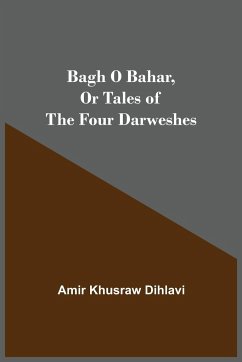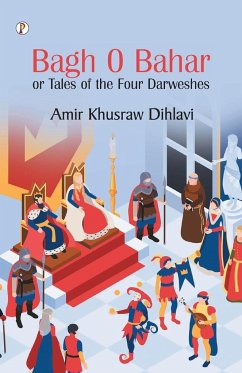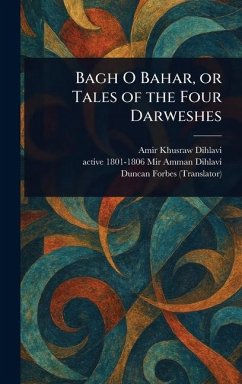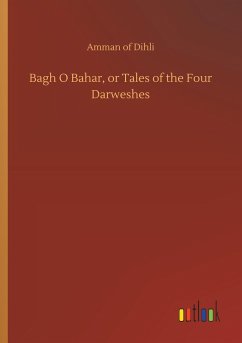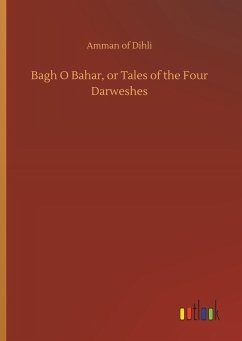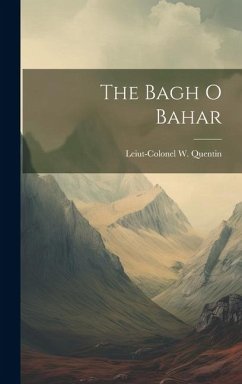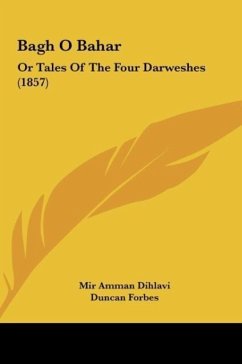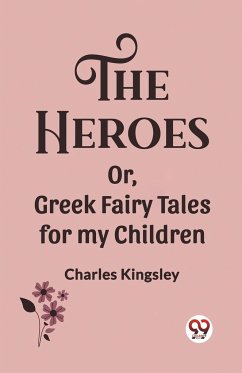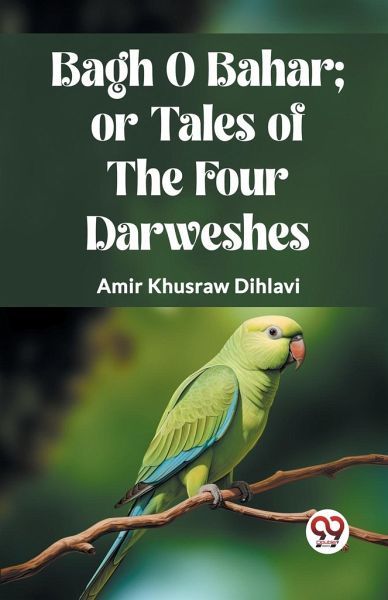
BAGH O BAHAR; OR TALES OF THE FOUR DARWESHES

PAYBACK Punkte
8 °P sammeln!
"Bagh-o-Bahar; or Tales of the Four Darweshes" is a masterpiece of classical Persian and Urdu literature authored by way of Amir Khusraw Dihlavi, a prominent thirteenth-century poet, musician, and pupil from the Indian subcontinent. The narrative is framed in the context of an emperor overhearing a verbal exchange between a princess and a parrot in his garden. The parrot, serving as a storyteller, gives 4 awesome tales, each encapsulating a completely unique genre-romance, fantasy, journey, and comedy. Through those tales, Amir Khusraw weaves a wealthy tapestry of human reports, exploring topi...
"Bagh-o-Bahar; or Tales of the Four Darweshes" is a masterpiece of classical Persian and Urdu literature authored by way of Amir Khusraw Dihlavi, a prominent thirteenth-century poet, musician, and pupil from the Indian subcontinent. The narrative is framed in the context of an emperor overhearing a verbal exchange between a princess and a parrot in his garden. The parrot, serving as a storyteller, gives 4 awesome tales, each encapsulating a completely unique genre-romance, fantasy, journey, and comedy. Through those tales, Amir Khusraw weaves a wealthy tapestry of human reports, exploring topics of affection, morality, future, and the capricious nature of life. The characters variety from kings and queens to fanatics and mystical beings, growing a various and charming narrative. The paintings are widely known for its complicated prose, poetic language, and the moral lessons embedded in each story. Amir Khusraw's storytelling transcends cultural and linguistic barriers, making "Bagh-o-Bahar" an undying conventional. The testimonies now not simplest entertain however also offer profound insights into the complexities of the human condition. "Bagh-o-Bahar" stands as a testomony to Amir Khusraw's literary genius, showcasing his ability to blend various narrative patterns seamlessly. As a cultural treasure, the paintings continues to enchant readers with its enduring relevance and normal themes.




